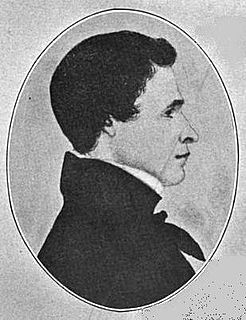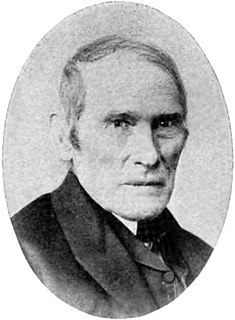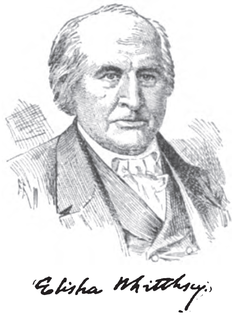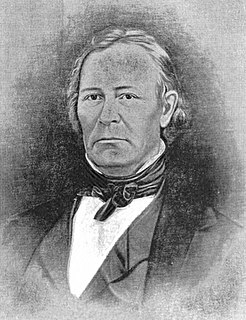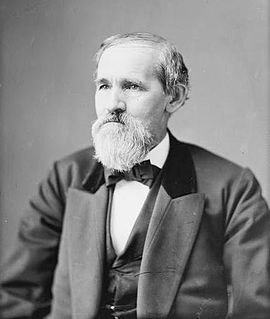| Daniel Duncan | |
|---|---|
| Member of the U.S.HouseofRepresentatives from Ohio's 10th district | |
| In office March 4, 1847 –March 3, 1849 | |
| Preceded by | Columbus Delano |
| Succeeded by | Charles Sweetser |
| Member of the OhioHouseofRepresentatives from the Licking County district | |
| In office December 4, 1843 –December 1, 1844 ServingwithSamuel White | |
| Preceded by | Isaac Green Phelps Humphreys |
| Succeeded by | P. N. O'Bannon |
| Personal details | |
| Born | July 22, 1806 Shippensburg, Pennsylvania |
| Died | May 18, 1849 (aged 42) Washington, D.C. |
| Resting place | Newark Graveyard |
| Political party | Whig |
| Alma mater | Jefferson College |
| Signature | |
Daniel Duncan (July 22, 1806 – May 18, 1849) was a U.S. Representative from Ohio.

The United States House of Representatives is the lower chamber of the United States Congress, the Senate being the upper chamber. Together they comprise the legislature of the United States.
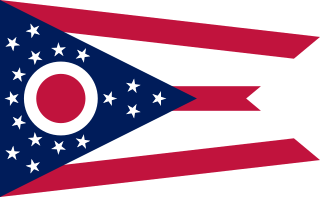
Ohio is a Midwestern state in the Great Lakes region of the United States. Of the fifty states, it is the 34th largest by area, the seventh most populous, and the tenth most densely populated. The state's capital and largest city is Columbus.
Born in Shippensburg, Pennsylvania, Duncan completed preparatory studies. He attended Jefferson College, Canonsburg, Pennsylvania, in 1825. He moved to Newark, Ohio, in 1828. He engaged in mercantile pursuits. He served as member of the State house of representatives in 1843. He was an unsuccessful Whig candidate for election to the State senate in 1844.
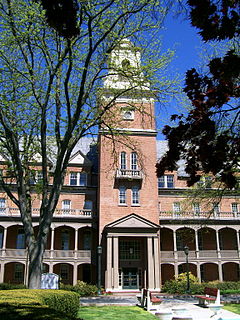
Shippensburg is a borough in Cumberland and Franklin counties in the U.S. state of Pennsylvania. Settled in 1730, Shippensburg lies in the Cumberland Valley, 41 miles (66 km) southwest of Harrisburg, and is part of the Harrisburg–Carlisle Metropolitan Statistical Area. The population was 5,492 at the 2010 census. Of this, 4,416 were in Cumberland County, and 1,076 were in Franklin County.

Canonsburg is a borough in Washington County, Pennsylvania, 18 miles (29 km) southwest of Pittsburgh. Canonsburg was laid out by Colonel John Canon in 1789 and incorporated in 1802. The population was 8,992 at the 2010 census.

Newark is a city in and the county seat of Licking County, Ohio, United States, 33 miles (53 km) east of Columbus, at the junction of the forks of the Licking River. The estimated population was 49,423 at the 2017 census, which makes it the 16th largest city in Ohio.
Duncan was elected as a Whig to the Thirtieth Congress (March 4, 1847 – March 3, 1849). He was an unsuccessful candidate for reelection in 1848 to the Thirty-first Congress. He died in Washington, D.C., on May 18, 1849. He was interred in the Newark Graveyard, Newark, Ohio.

The Whig Party was a political party active in the middle of the 19th century in the United States. Four presidents belonged to the party while in office. It emerged in the 1830s as the leading opponent of Jacksonian democracy, pulling together former members of the National Republican and the Anti-Masonic Party. It had some links to the upscale traditions of the long-defunct Federalist Party. Along with the rival Democratic Party, it was central to the Second Party System from the early 1840s to the mid-1860s. It originally formed in opposition to the policies of President Andrew Jackson and his Democratic Party. It became a formal party within his second term, and slowly receded influence after 1854. In particular terms, the Whigs supported the supremacy of Congress over the presidency and favored a program of modernization, banking and economic protectionism to stimulate manufacturing. It appealed to entrepreneurs, planters, reformers and the emerging urban middle class, but had little appeal to farmers or unskilled workers. It included many active Protestants and voiced a moralistic opposition to the Jacksonian Indian removal. Party founders chose the "Whig" name to echo the American Whigs of the 18th century who fought for independence. The political philosophy of the American Whig Party was not related to the British Whig party. Historian Frank Towers has specified a deep ideological divide:

The Thirtieth United States Congress was a meeting of the legislative branch of the United States federal government, consisting of the United States Senate and the United States House of Representatives. It met in Washington, D.C. from March 4, 1847, to March 4, 1849, during the last two years of the administration of President James K. Polk. The apportionment of seats in the House of Representatives was based on the Sixth Census of the United States in 1840. The Senate had a Democratic majority, and the House had a Whig majority. It was the only Congress in which Abraham Lincoln served.

The Thirty-first United States Congress was a meeting of the legislative branch of the United States federal government, consisting of the United States Senate and the United States House of Representatives. It met in Washington, D.C. from March 4, 1849, to March 4, 1851, during the 16 months of the Zachary Taylor presidency and the first eight months of the administration of Millard Fillmore's. The apportionment of seats in this House of Representatives was based on the Sixth Census of the United States in 1840. The Senate had a Democratic majority, while there was a Democratic plurality in the House.



